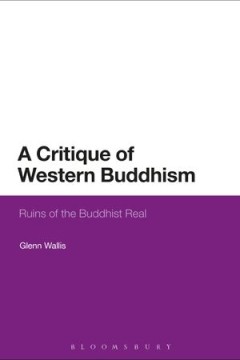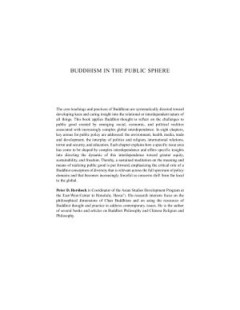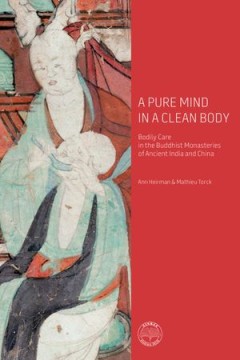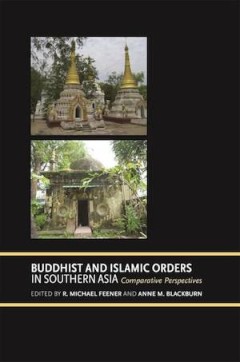Filter by

A Critique of Western Buddhism : Ruins of the Buddhist Real
What are we to make of Western Buddhism? Glenn Wallis argues that in aligning their tradition with the contemporary wellness industry, Western Buddhists evade the consequences of Buddhist thought. This book shows that with concepts such as vanishing, nihility, extinction, contingency, and no-self, Buddhism, like all potent systems of thought, articulates a notion of the “real.” Raw, unflinc…
- Edition
- -
- ISBN/ISSN
- 9781474283557
- Collation
- 232 hlm
- Series Title
- -
- Call Number
- -

Buddhism in the Public Sphere
The core teachings and practices of Buddhism are systematically directed toward developing keen and caring insight into the relational or interdependent nature of all things. Hershock applies Buddhist thought to reflect on the challenges to public good, created by emerging social, economic, and political realities associated with increasingly complex global interdependence. In eight chapters, t…
- Edition
- -
- ISBN/ISSN
- 9780203970126
- Collation
- -
- Series Title
- -
- Call Number
- 294.3 HER b

A Pure Mind in a Clean Body Bodily Care in the Buddhist Monasteries of Ancie…
Buddhist monasteries, in both Ancient India and China, have played a crucial social role, for religious as well as for lay people. They rightfully attract the attention of many scholars, discussing historical backgrounds, institutional networks, or influential masters. Still, some aspects of monastic life have not yet received the attention they deserve. This book therefore aims to study some o…
- Edition
- -
- ISBN/ISSN
- 9789038220147
- Collation
- -
- Series Title
- -
- Call Number
- -

Buddhist and Islamic Orders in Southern Asia Comparative Perspectives
This volume aims to foster interaction between scholars in the subfields of Islamic and Buddhist studies by increasing understanding of the circulation and localization of religious texts, institutional models, and ritual practices across Asia and beyond. Buddhist and Islamic Orders in Southern Asia scrutinizes religious orders (here referring to Sufi ?ar?qas and Buddhist monastic and other rit…
- Edition
- -
- ISBN/ISSN
- 9780824882419
- Collation
- -
- Series Title
- -
- Call Number
- -
 Computer Science, Information & General Works
Computer Science, Information & General Works  Philosophy & Psychology
Philosophy & Psychology  Religion
Religion  Social Sciences
Social Sciences  Language
Language  Pure Science
Pure Science  Applied Sciences
Applied Sciences  Art & Recreation
Art & Recreation  Literature
Literature  History & Geography
History & Geography